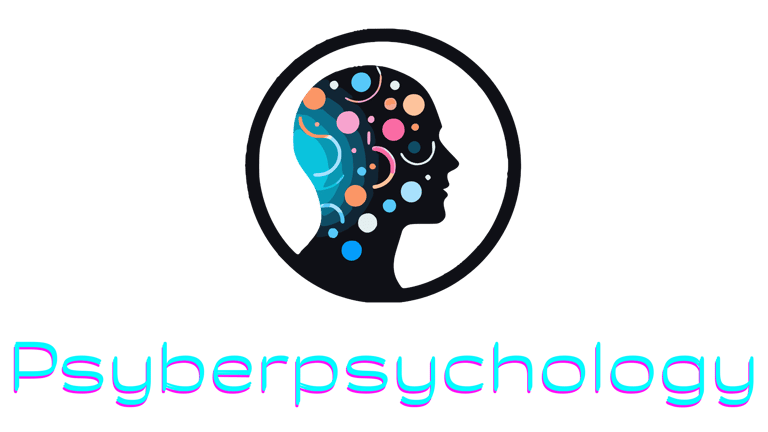The Virtual Reality Hangover - Why VR Can Leave You Feeling 'Unreal'
CYBERCULTURE
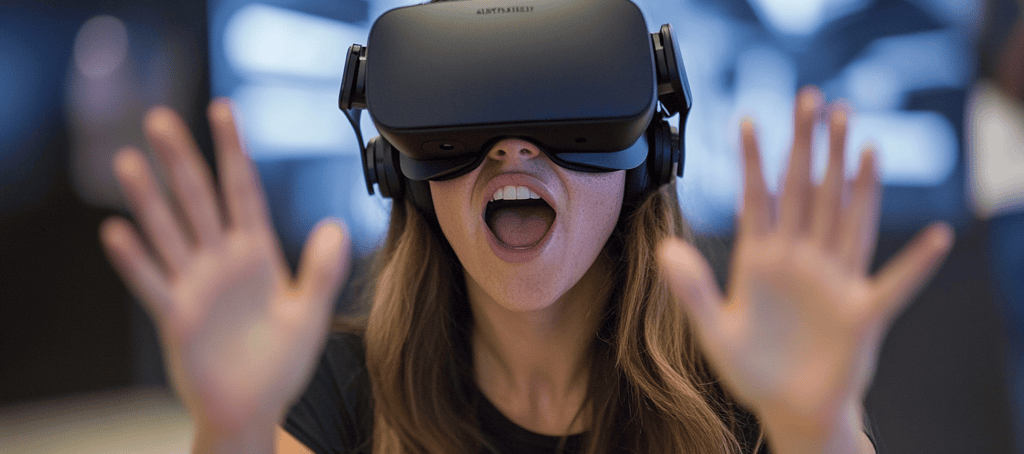

You just finished an intense VR gaming session. The graphics were stunning, the action immersive—but when you take off the headset, something feels... off. The real world feels distant, almost surreal. Your hands don't quite feel like your own, and everyday objects seem strangely unfamiliar. If this sounds familiar, you might be experiencing what users and researchers have dubbed a "VR hangover."
Unlike its alcohol-induced namesake, this digital aftereffect doesn't come with nausea and regret (well, not always). Instead, it describes the strange, lingering sensations that follow prolonged virtual reality exposure—a temporary disconnect between your brain and the physical world around you. But what's happening to your brain when virtual reality feels more "real" than reality itself?
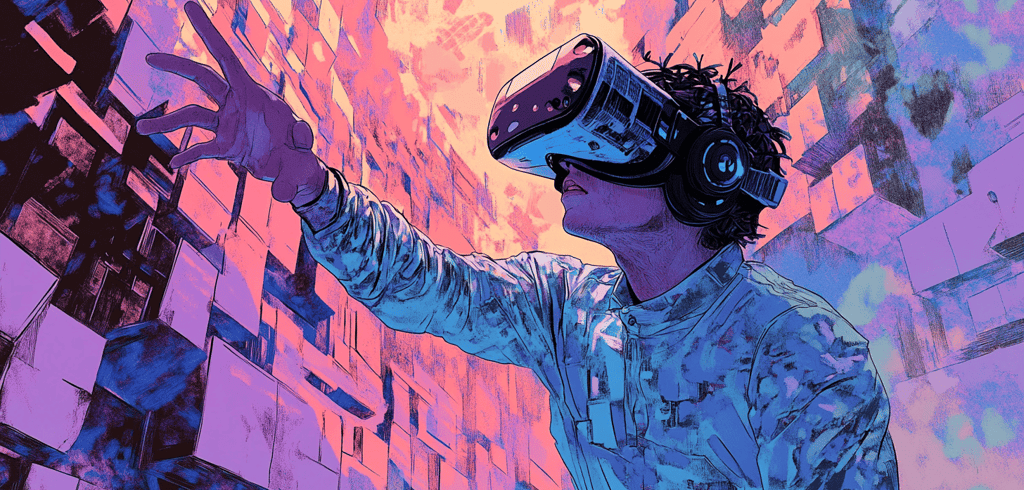

When Virtual Reality Hijacks Your Perception
Many VR users report unusual sensations after extended sessions. Some find themselves reaching for real objects as if they were still in VR, momentarily forgetting they don't need to press buttons or make special gestures to interact with the physical world. Their brains continue operating on VR logic even after the headset is removed.
This cognitive confusion isn't just anecdotal—it's neuroscience in action. VR technology effectively hacks our perceptual systems by delivering coordinated visual and auditory stimuli that convince our brains we're somewhere we're not. Our brains evolved over millions of years to trust what our senses tell us, and VR exploits this trust.
The Brain's Reality Filter Gets Confused
The human brain uses a complex filtering system to distinguish between real and imagined experiences. When you read a book or watch a movie, your brain maintains a clear separation between fiction and reality. But VR bypasses many of these filters by engaging multiple sensory systems simultaneously—creating what researchers call "presence," the compelling feeling of actually being somewhere else.
Neuroscientists studying VR effects note that our brains essentially maintain two competing spatial maps during VR use—one for the virtual environment and one for physical reality. When the headset comes off, our brains need time to readjust and recognize the physical world as the "real" one again.
Sensory Mismatch: When Eyes and Body Disagree
Many VR hangover symptoms stem from sensory conflicts. Your visual system processes the virtual movement while your vestibular system (responsible for balance and spatial orientation) detects that you're actually stationary. This mismatch can trigger symptoms similar to motion sickness: dizziness, nausea, and spatial disorientation.
First-time VR users often report feeling as though they're floating when walking after a session, describing sensations where their feet don't seem to properly connect with the ground. These unusual perceptions typically fade within an hour but can be quite disorienting.
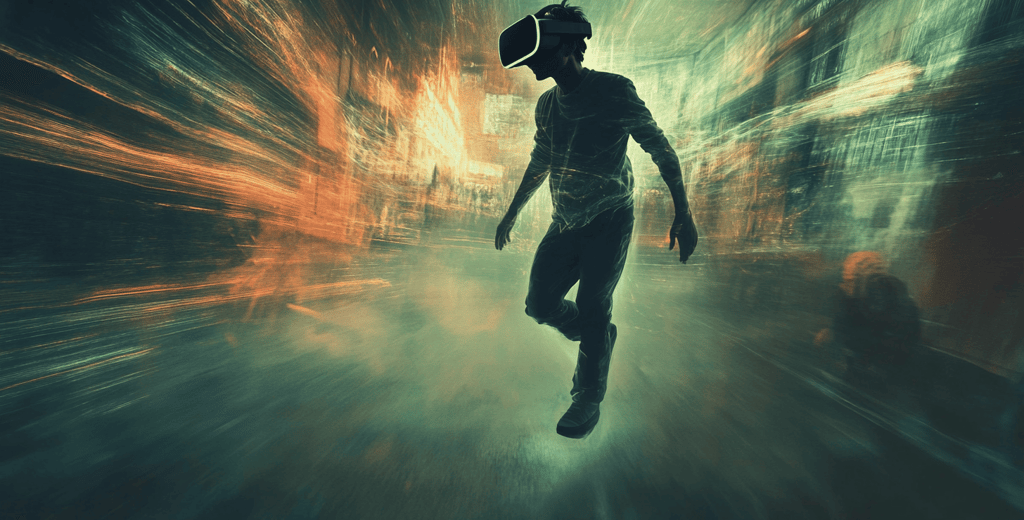

Beyond Physical Symptoms: The Psychological Impact
The effects of extended VR sessions go deeper than mere dizziness or eye strain. Many users report cognitive and emotional changes that can linger for hours after use.
The Fog of Virtual War
"VR fog" describes the mental fatigue and attention problems that can follow intensive VR sessions. Users report difficulty concentrating, memory lapses, and slowed reaction times—almost as if part of their mind remains in the virtual world.
Researchers believe this cognitive drain stems from the brain's sustained effort to process and integrate the virtual environment. The significant cognitive resources required to create and maintain a coherent sense of presence in VR can become depleted, temporarily affecting everyday cognitive tasks after the session ends.
Emotional Aftershocks
VR can trigger powerful emotional responses—from adrenaline-fueled excitement in action games to genuine fear in horror experiences. These emotional states don't always switch off when the headset comes off.
Some users of intense VR experiences, particularly those involving survival or horror elements, report remaining jumpy and on edge for hours afterward. Ordinary household sounds might trigger startle responses, suggesting their threat-detection systems remain in a heightened state of alert well after the virtual danger has passed.
When Your Body Feels Unreal
Perhaps the most unsettling aspect of VR hangovers is temporary derealization—a sensation that the physical world or your own body seems strangely unfamiliar or even unreal. Users describe feeling disconnected from their physical movements, as if their hands belong to someone else or objects aren't quite solid.
This phenomenon shares similarities with depersonalization-derealization disorder, although in VR users, it's typically mild and temporary. Still, the sensation can be disconcerting, especially for first-time or sensitive users.
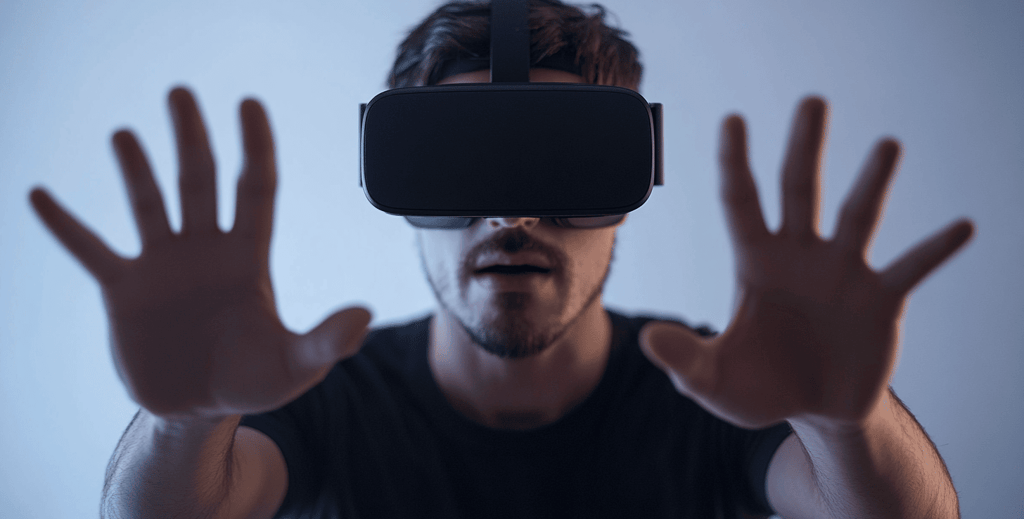

The Neuroscience Behind Your Digital Daze
To understand why VR can leave us feeling disconnected from reality, we need to look at what's happening in our brains during and after immersion.
Neuroplasticity: Your Brain's Quick-Change Artist
The brain demonstrates remarkable plasticity—the ability to reorganize neural pathways based on new experiences. During VR immersion, your brain temporarily adapts to the rules and spatial relationships of the virtual environment.
Researchers emphasize that this demonstrates the brain's incredible adaptability. It can quickly incorporate virtual objects and spaces into its body schema—its internal model of your body and its relation to the environment. However, this adaptation doesn't switch off instantly when you remove the headset.
This temporary rewiring particularly affects the prefrontal cortex (involved in decision-making) and the parietal lobe (crucial for spatial awareness)—explaining why users might reach for virtual objects that aren't there or misjudge distances in the real world.
The Dopamine Roller Coaster
Exciting VR experiences trigger dopamine release—the same neurotransmitter involved in pleasure, reward, and addiction. The surge of stimulation followed by its sudden removal when you exit VR can create a neurochemical imbalance similar to other types of "crashes."
Neuroscientists point out that the contrast between heightened stimulation in VR and returning to normal reality can be jarring. The brain adjusts to higher levels of sensory input and reward signals, which can make ordinary reality seem temporarily dull by comparison when the session ends.
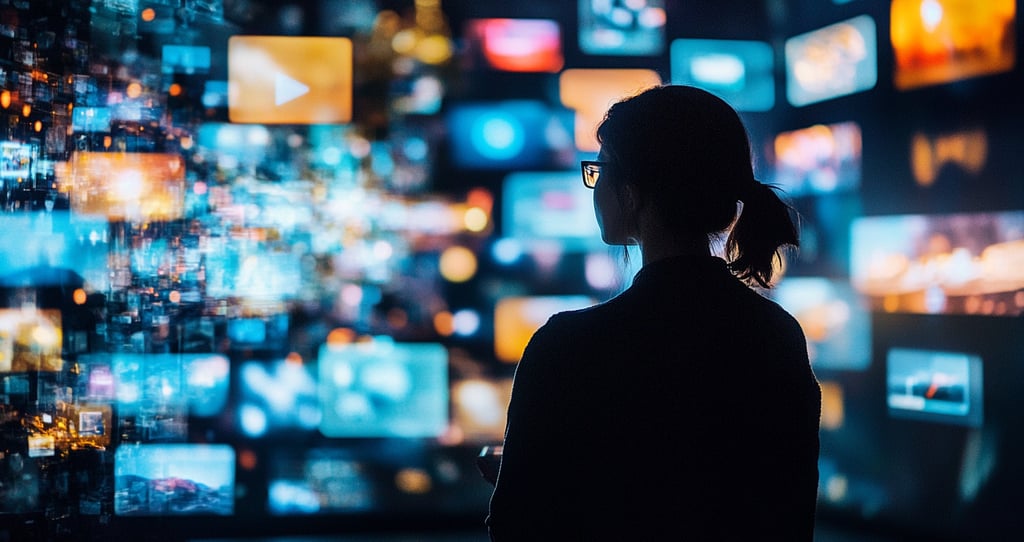

Warning Signs: Common VR Hangover Symptoms
While experiences vary, these symptoms frequently appear after extended VR sessions:
Dizziness or light-headedness when moving in the real world
Headaches, particularly frontal or around the eyes
Visual disturbances like afterimages, blurred vision, or difficulty focusing
Proprioceptive confusion—misjudging distances or reaching incorrectly for objects
Mental fog—difficulty concentrating or feeling mentally sluggish
Mild dissociation—feeling detached from your surroundings or your own body
Mood changes—irritability, anxiety, or emotional flatness
Most symptoms resolve within minutes to hours, but if they persist beyond 24 hours or are severely disruptive, it's worth speaking to a healthcare provider.
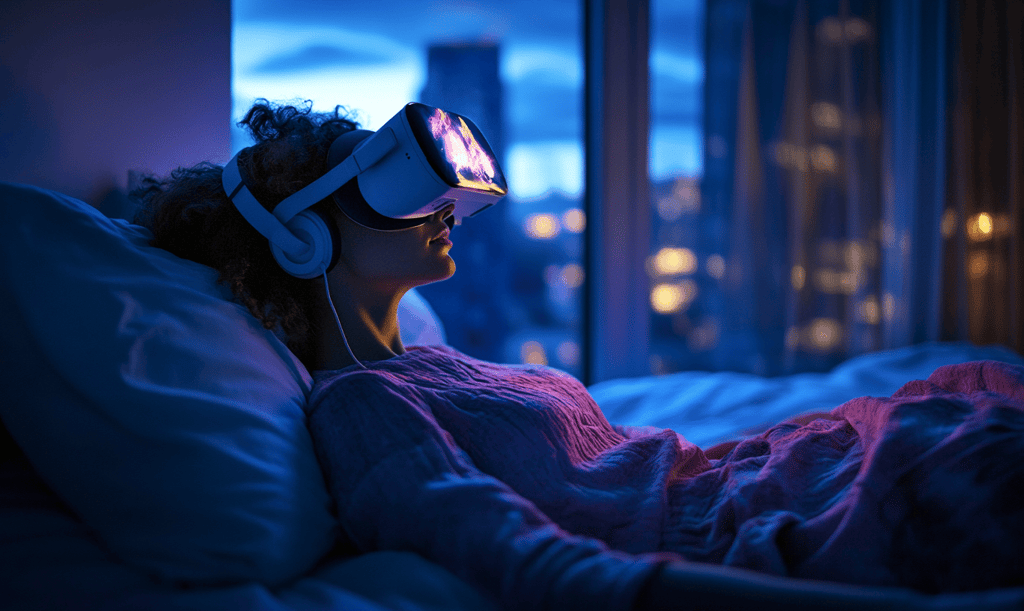

Finding Balance: How to Enjoy VR Without the Aftereffects
You don't need to abandon your virtual adventures to avoid the hangover. These strategies can help minimize post-VR discomfort:
Time Management for Digital Travelers
Start with short sessions (20-30 minutes) and gradually increase as your brain adapts to VR
Use the 20-20-20 rule: Every 20 minutes, look at something 20 feet away for 20 seconds
Schedule buffer time between VR and important tasks requiring full concentration
Take movement breaks every 30 minutes to reorient your vestibular system
Grounding Techniques to Reconnect with Reality
After removing your headset, try these practices to help your brain transition back to physical reality:
Touch physical objects with focused attention on their texture, temperature, and weight
Walk around slowly, paying attention to the sensation of your feet on the floor
Look out a window at distant objects to recalibrate your depth perception
Practice box breathing: Inhale for four counts, hold for four, exhale for four, and hold for four
Technical Adjustments for Comfort
Properly adjust your headset's IPD (interpupillary distance) to match your eyes
Enable comfort options like vignetting during movement or teleportation instead of smooth locomotion
Maintain high, stable frame rates to reduce visual-vestibular conflict
Ensure proper lighting in your physical space to reduce eye strain
Digital Mindfulness Practices
Keep a VR journal to track which applications or movements trigger symptoms
Practice body awareness during VR sessions by occasionally checking in with your physical sensations
Set boundaries between VR and sleep—avoid VR at least one hour before bedtime
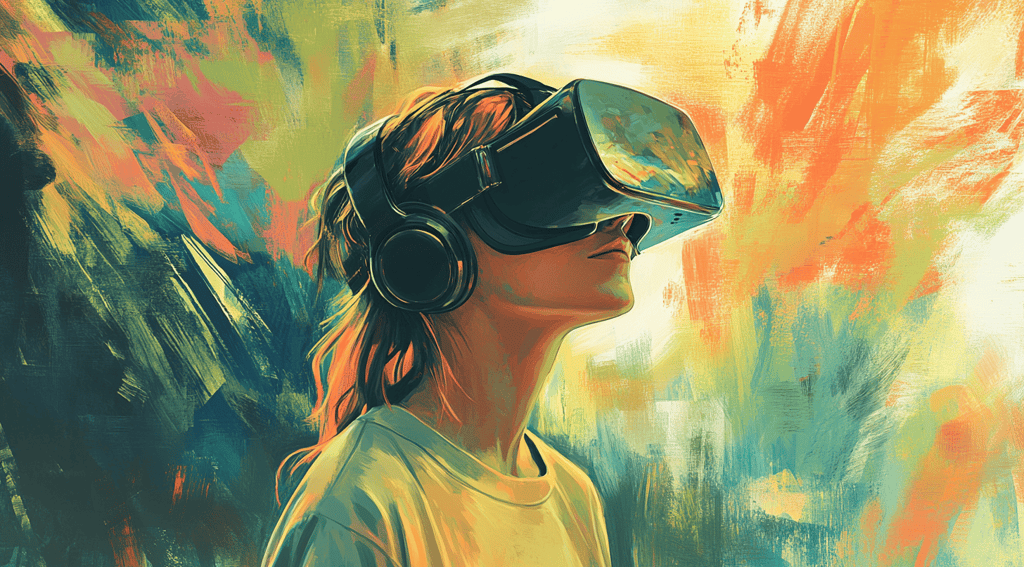

The Dual Nature of Virtual Reality
As VR technology evolves, researchers are discovering both its potential risks and remarkable benefits. The same immersive properties that can cause temporary perceptual disruptions also make VR a promising tool for therapy, education, and connection.
VR exposure therapy has shown effectiveness for treating PTSD, phobias, and anxiety disorders. Meanwhile, designers are increasingly incorporating features that promote well-being rather than cognitive strain, creating more physiologically friendly virtual environments.
Experts in the field emphasize that the goal isn't to avoid immersion altogether but to design systems that work with our perceptual apparatus rather than against it.
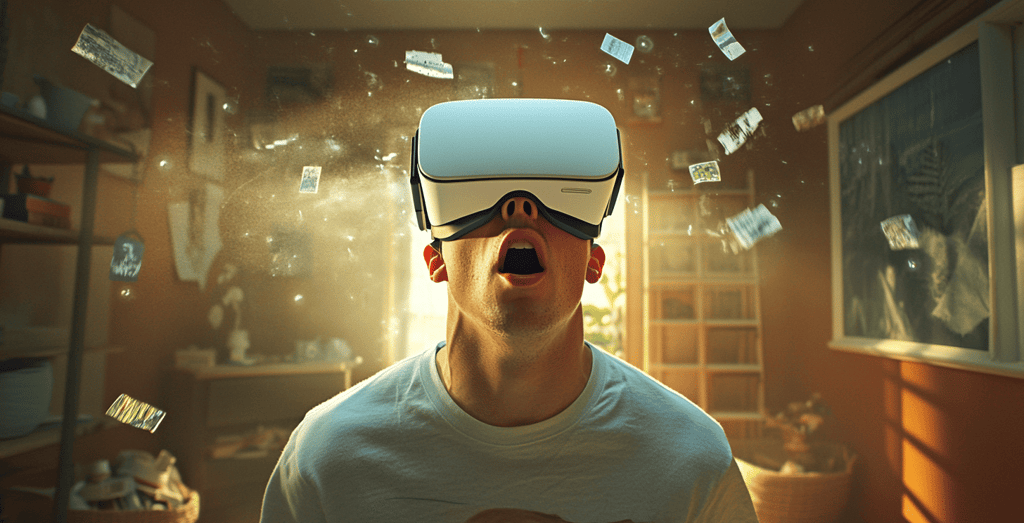

Bridging Two Worlds
Virtual reality has the power to transport us to incredible places—but when the headset comes off, it's important to remember where we are. As we navigate between these digital realms and our physical existence, developing healthy habits and expectations can help us enjoy the best of both worlds.
The temporary discomfort of a VR hangover might be a small price to pay for exploring the frontiers of digital experience. Still, understanding these effects can help us use this powerful technology mindfully, maintaining our footing in the physical world even as we venture into virtual ones.
Have you ever experienced a "VR hangover"? What strategies help you feel grounded after using virtual reality? Share your experiences in the comments below.
Quick Recovery Checklist
✓ Take a 10-15 minute break after removing your headset
✓ Drink water to stay hydrated
✓ Move your body with gentle stretching
✓ Focus on physical objects and textures
✓ Get fresh air and natural light if possible
✓ Avoid screens immediately after VR sessions
